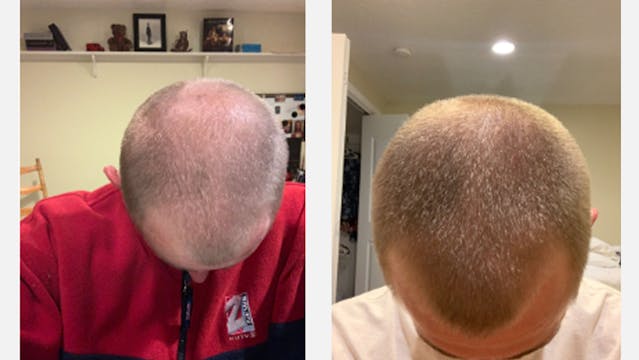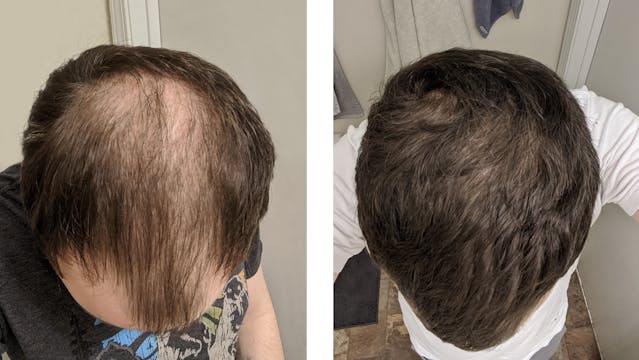Veganism has experienced a surge in popularity in recent years. According to The Vegan Society, the number of vegans in Great Britain quadrupled from 150,000 in 2014 to 600,000 in 2019.
Veganism is the practice of consuming foods and products that don’t come from animals. Many people do this for ethical reasons, however a huge part of the reason why the vegan diet has gained so much traction in mainstream culture is due to its supposed health benefits.
Going vegan is believed to improve gut health, reduce the risk of developing certain types of cancer, and have a positive impact on arthritis. It’s worth noting that many of the benefits of veganism are anecdotal (meaning they are based on personal accounts) rather than based on scientific research.
Another reason why some people go vegan is to lose weight. Unlike many of the other claims about veganism, this one is at least somewhat backed by science and eating a vegan diet has been shown to result in greater weight loss than other diets.
But just how effective is a vegan diet for weight loss? And should you follow a vegan diet to lose weight fast? Let’s find out.
Going vegan for weight loss - is it right for me?
Before attempting to commit to an extreme diet such as veganism, it’s important to be aware of the facts. Yes, eating more fruit and vegetables is very likely to improve your overall health. However, any diet that involves omitting an entire food group needs careful consideration. Going vegan can lead to nutrient deficiencies if it’s not approached in the proper way, so it’s a good idea to do your own research and seek advice from a healthcare professional - i.e. your doctor or a nutritionist - before starting a vegan diet (or any other diet).
How effective is a vegan weight loss diet?
So far, there haven’t been many studies conducted on the effectiveness of a vegan diet for weight loss. Nonetheless, one small study showed that veganism was more effective for weight loss than vegetarian, pesco-vegetarian, semi-vegetarian, and omnivorous (meat and vegetable) diets.
A reason why the vegan diet may be able to help some people lose weight is that vegans tend to consume less saturated fat. Animal products such as butter and cheese are usually high in saturated fats, which can cause you to put on weight if you eat too much of them.
However, a vegan’s saturated fat intake depends on the kind of food they’re eating. Vegans who eat a natural plant-based diet that consists mainly of wholefoods (i.e. foods that haven’t been processed) are likely to consume less saturated fat than vegans who eat ultra-processed vegan products. That’s because many of the vegan food products that are marketed as “healthy substitutes” are in fact packed with saturated fat, as well as, sugar, salt and other additives.
For example, one popular UK brand (we can’t name them for legal reasons) provides a vegan mincemeat substitute that contains more saturated fat and salt than real mincemeat. Likewise, many vegan snacks are laden with sugar, which can also contribute to weight gain.
If you’re thinking about adopting a vegan diet to lose weight, it’s best to avoid ultra-processed foods and stick to a more natural vegan diet that’s composed of whole foods. If you do occasionally opt for processed food, it’s important to check the nutritional information on the back of the packet to make sure it’s not overloaded with saturated fat, sugar, and salt.
The numan take
While there’s some evidence to suggest a vegan diet can promote weight loss, there isn’t enough evidence to outright recommend it as an effective weight loss diet. If you’re considering following a vegan diet, you should do thorough research to ensure you’re getting the right nutrition and also consult your doctor or another health professional to make sure it’s appropriate for you.
Many vegan food products are heavily processed and aren’t as healthy as they’re made out to be. Make sure to always read the nutritional information on the back of the packet so you can ensure the food you pick is not full of saturated fat and sugar. Both can contribute to weight gain if eaten in excessive quantities, so managing your intake of these is key if you want to lose weight.
Eating wholefoods is likely to be the better option for shedding the pounds if you decide to follow a vegan diet for weight loss. This is because fruit, vegetables, and other vegan-friendly wholefoods are usually low in saturated fat and sugar, which makes it easier to achieve and maintain a calorie deficit. As long as you’re in a calorie deficit (i.e. when you consume less calories than you burn) you will be able to lose weight regardless of the type of diet you have.
Related articles:
- Exercise and weight loss: creating your action plan
- The fundamentals of nutrition and weight loss
- Here’s how your mental health could be hindering your weight loss success
- Here’s everything you need to know about following a healthy diet
- 9 tips and tricks to stay motivated to lose weight
- Can’t sleep? Here are 5 tips for better sleep, backed by research







